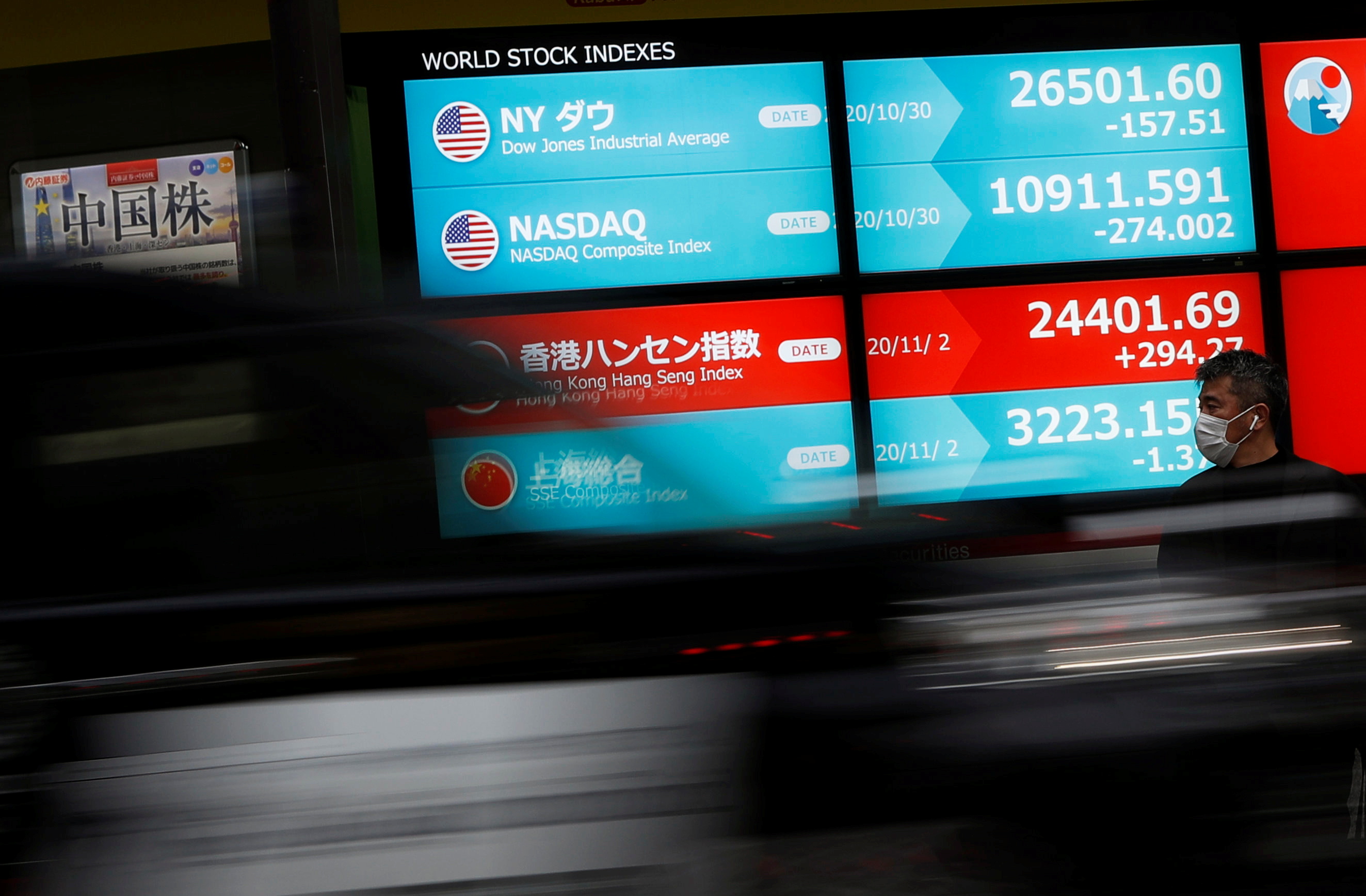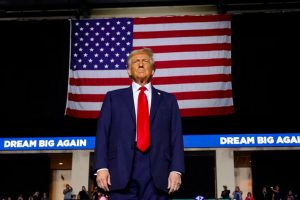Asia’s major markets felt the impact on Wednesday of a Wall Street rout that saw investors fretting over inflation, the end of the Federal Reserve’s financial support and a standoff in Washington that could end with a catastrophic US debt default.
Ongoing worries about the potential collapse of Chinese property giant Evergrande, an energy crunch in China and the ever-present spectre of the Delta coronavirus variant also dragged the mood down on trading floors.
After a year and a half of ultra-loose monetary policy from the Fed and other central banks – helping fire a global economic recovery and send equities to record or multi-year highs – officials have signalled they are ready to take away the punch bowl.
Also on AF: Alibaba, Meituan and JD.com Aim To Deliver With Aid Of A Robot Army
While broadly expected, the decision comes as inflation continues to surge because of supply chain problems and energy costs spikes – Brent crude broke $80 for the first time in three years on Tuesday.
The Fed last week indicated it would start winding down its massive bond-buying programme by the end of the year, while a gauge of future interest rates suggested a hike could come before 2023.
But a surge in Treasury yields this week has sparked panic that the Fed could tighten much earlier and quicker than initially thought as inflation takes off.
The dollar largely held on to recent gains as higher yields make the currency more attractive to investors.
This has led to talk of a possible period of damaging “stagflation”, where inflation surges but economic growth remains subdued.
NASDAQ SELL-OFF
The Nasdaq led a sharp sell-off in New York with tech firms more susceptible to higher rates as they borrow cash to fuel growth.
“What we got here is a stock market that finally looks vulnerable as Treasury yields surge, oil prices look like they could easily hit $90 a barrel, and as supply chain issues show no signs of easing,” said OANDA’s Edward Moya.
“The Fed was willing to tolerate a little inflation overshoot but the current energy crunch could force a major pivot before the end of the year.”
Tokyo tanked more than 2%, having enjoyed a strong run in recent weeks on hopes for more stimulus from a new Japanese prime minister.
The ruling party elected former foreign minister Fumio Kishida as its new leader Wednesday, putting him on course to take the mantle of Yoshihide Suga.
The Nikkei 225 fell 2.12%, or 639.67 points, to close at 29,544.29, while the broader Topix index lost 2.09%, or 43.48 points, to 2,038.29.
DEBT CEILING
Shanghai, Sydney and Seoul lost more than 1% with Taipei down 1.9%. There were also losses in Wellington, Mumbai and Bangkok. However, Hong Kong, Singapore, Manila and Jakarta rose.
The Hang Seng Index added 0.67%, or 163.11 points, to 24,663.50. The Shanghai Composite Index shed 1.83%, or 65.92 points, to 3,536.29, while the Shenzhen Composite Index on China’s second exchange dropped 2.29%, or 55.04 points, to 2,347.16.
Investors are also keeping an increasingly worried eye on Washington where lawmakers are bickering over raising the US debt ceiling.
Republicans have refused to agree to the move, despite top officials including Treasury Secretary Janet Yellen and Fed boss Jerome Powell warning of an economic thunderbolt if the country fails to meet its bond repayment obligations.
Yellen said a deal needs to be done before the cash runs out around October 18.
Separately, the government could shut down later this week unless Congress approves a temporary budget measure by Thursday.
That comes as Democrats struggle to pass President Joe Biden’s multi-trillion-dollar infrastructure and social spending bills, with party infighting fuelling concerns that the president’s agenda could collapse.
MARKETS
Tokyo > Nikkei 225: DOWN 2.1% at 29,544.29 (close)
Hong Kong > Hang Seng Index: UP 0.7% at 24,663.50 (close)
Shanghai > Composite: DOWN 1.8% at 3,536.29 (close)
New York > Dow: DOWN 1.6% at 34,299.99 (close)
- AFP with additional editing by Sean O’Meara
Read more:
China Energy Crunch Triggers Alarm, Plea for More Coal
China Pulls Out the Big Guns to Avert Evergrande-Fuelled Disaster
























